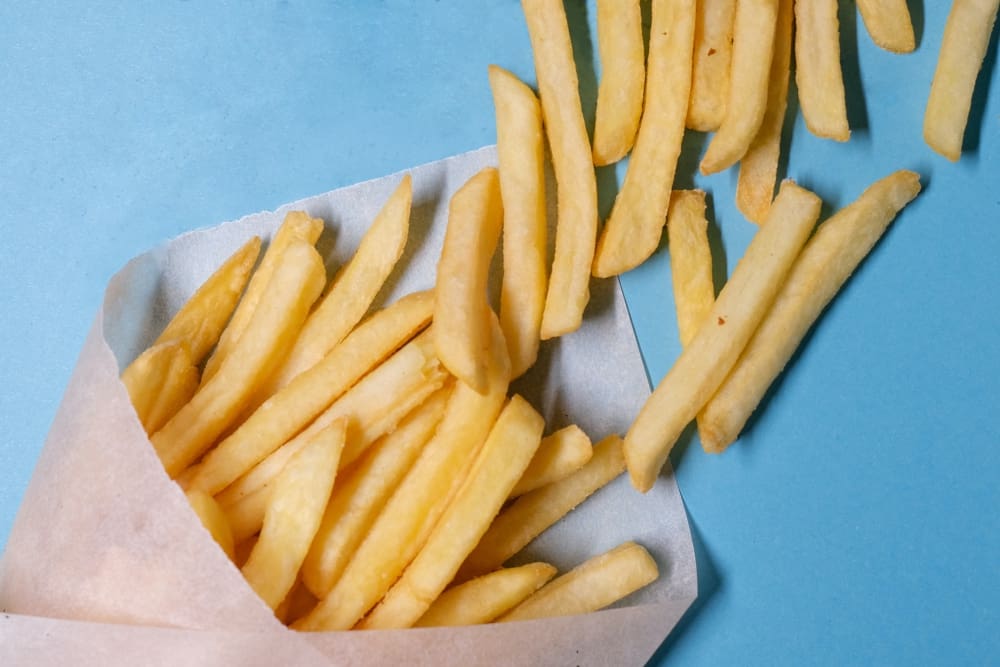Culinary Customs
In general, the Dutch have three meals a day. In the past, they had meat, vegetables, and potatoes for dinner, but nowadays they are influenced by other culinary tastes. This is also reflected in the variety of restaurants. Lunch often consists of bread and cheese or light spread.
Dutch Food
A very traditional dinner dish is stamppot – the name for several variations of a winter dish with mashed potatoes and vegetables, such as hutspot with carrots and onions, boerenkool with green kale, or zuurkool with sauerkraut.
Erwtensoep or snert (two different types of pea soup) are well known and traditionally eaten after ice skating or working hard in the cold. And Dutch fries (patat) are also well-known and eaten with a sweet mayonaise sauce (patat met mayo).
The Dutch do not only eat a lot of cheese (on bread), but it is also a substantial export product. Another typical bread topping is hagelslag (chocolate sprinkles) that is not only eaten by children but by adults as well. A surprisingly wide variety of hagelslag is available in the supermarket.
Some other typical foods include:
- Haring: raw herring; it’s seasonal and the first barrel in June is auctioned for charity. You eat them by hand with raw onion at stands on the street or at the fish shop.
- Poffertjes: mini pancakes. You can buy them at special stalls, and they are served with butter and icing sugar.
- Drop: Licorice
- Stroopwafel: Waffle cookies with a syrup or caramel middle
There are also vending machines built into the walls of snack bars where you can purchase a snack (kroketten, frikandellen, etc.) without a shop assistant. They call it “eten uit de muur” (eating from the wall).

Drinks
The Dutch usually don’t socialize with their colleagues and will keep work and private life separate. They don’t like working late or coming in over the weekend as they like to keep this their personal time. They might go for drinks after work (borrel) but tend to go home after 1.5 hours for dinner. In the past, the drinks took place at a “bruin café” where they serve Dutch and Belgian beer, wine and spirits such as Dutch jenever, and of course soft drinks. Nowadays, there is a wide variety of places to go for a borrel. No meals are served, but snacks like “bitterballen” and cubes of cheese may be ordered.
When the first rays of sunshine appear after wintertime, you will find a lot of people on terraces outside, although the temperature might still be low.
